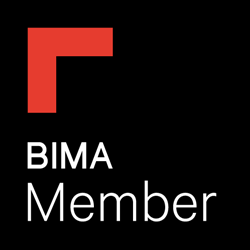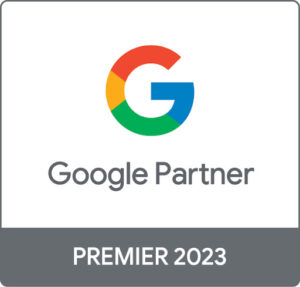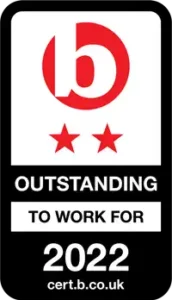“Sticks and stones will break my bones, but words can never hurt me….”
We are all probably familiar with this phrase, shouted out across the playground to your rival after they’d called you something diabolical. We are all probably, therefore, also aware of how totally untrue the saying is.
Words are powerful; there is no denying it. While they can damage if used with malicious intent, words can also inspire, uplift, and motivate people to change. Just think of all the great speeches that have altered your perspective, inspiring books that have helped you take action, jokes that have made you howl with laughter, scripts that have caused you to weep uncontrollably into the cushions of your sofa.
When it comes to marketing your business, it’s no different. To sell something to someone, you need to evoke an emotional response. So careful word choice can have a massive impact.
Why are words important for content marketing?
Selecting the right words can see your sales soar, selecting the wrong ones can leave you stagnant, or even worse, actually damage your reputation and credibility in the marketplace. Find out below the importance of wording choice in content marketing and what effect they may have.
They build your brand
The words you choose can help you become instantly recognisable to your audience. Let’s do a little quiz – do you know these brands just by their slogans?
“Just Do It”
“There are some things money can’t buy. For everything else, there’s….”
“Snap! Crackle! Pop!”
“Finger-lickin’ good”
“Let’s go places.”
It’s not just that these slogans are catchy and memorable, they also say something about the businesses behind them – motivated, reliable, fun, irresistible, adventurous, and so on. The words you choose will tell your audience who you are and humanise the company. Based on the words you choose, people decide whether they want to be associated with you, whether they buy into your philosophy or not.
They demonstrate trustworthiness and credibility
Your choice of words will reveal whether you are an expert in your industry: a leader, a knowledgeable, passionate professional who is dedicated to helping their customers. Alternatively, they could expose you as a two-bit salesman, a dodgy dealer, the business equivalent of a street merchant flashing you copyrighted DVDs from the inside of a crumpled Woolworths carrier bag. Choose your words honestly. Don’t say what you don’t mean, don’t make promises you can’t keep.
They connect you with your audience
Your word choice has to be right for your audience. The better you understand your customers, the higher chance you have of getting this right. You don’t want to be too technical and use lots of jargon if you’re talking to a layperson who thinks you are talking gobbledegook. You don’t want to come across as patronising and babying to an audience who already has good knowledge and can handle more complex information. You don’t want to make too many jokes to a serious audience; you don’t want to come across as taking yourself too seriously to those who like a more casual approach.
The bottom line is, don’t be lazy about getting to know your customers, figure out who your target demographic is, change your words in your marketing copy for different groups, and always listen, redraft and refine according to the responses you get.
Remember, every word matters
The devil is in the details when it comes to word choice. Don’t just review your general copy, but absolutely anywhere there is text that your customers and potential customers could see. So your website menus, newsletters, email sign-off, advertising, blog – everything needs to be reviewed because the slightest change could make the most significant difference. Take online retailer Fab who changed their shopping cart button from reading “+Cart” to “Add to Cart.” It was a swap so simple, but one that resulted in a 49% increase in their CTR.
Strategies to help improve your marketing language
Your content marketing strategy is important, below are things to consider when building out your brand and marketing language for your audience.
1. Know your industry
To write the best marketing copy for your business, you’ll have to learn the nuances of your particular industry. This is going to be crucial in terms of the language you choose. You must always keep in mind how your customers view themselves and use words they would use, so you don’t create a divide. You might need to get more specific, create concrete promises backed up with facts, or perhaps you haven’t clearly stated the benefits you offer. It could be that you need to simplify your language or make it more lively and descriptive or emotive and persuasive. When reading your copy, you need to think about how the words make you feel and whether the language you’ve chosen is genuinely suitable for your product.
2. Consider connotations when trying to inspire action
There are many ways to say the same thing, so make sure that when you want your customers to do something, you pick a motivating phrase, not an off-putting one. A “sign up here” button might be better rephrased as “begin your journey,” “let’s go!” or “are you ready to start?” The former is more direct and implies lots of hassle and form filling out, while the latter phrases suggest excitement, a change, something positive, or even challenges your reader to dare to do it.
3. If in doubt, keep it simple
Simplicity will create a stronger, clearer, and cleaner message than something overwritten and verbose. Think about what your message is, what you stand for, how you can help people, and how you want to be seen. Then choose words and phrases that support this in the most succinct and direct way. Short, snappy language will keep readers interested, so streamline your writing and cut out anything that doesn’t strengthen your messaging, is repetitive, or could lead to confusion or misinterpretation.
4. Tackle your most important places first
When it comes to word choice in content marketing, not all areas are equal. If you are doing a content overhaul, focus on the quick wins first of all. Start by amending your CTAs to make them as strong as possible. Also, look at your opening sentences to ensure you draw readers in and engage them from the outset. In a couple of sentences, customers should understand your product and why they should buy it.
Choose the right words to tell your story
Whatever business you’re in, you need to create a narrative. Tell a story that sparks your reader’s interest. Unravel information that will excite them. Keep them hooked with revelations of how your product or service can make their life that little bit easier. Then in your grand finale, wow them with your irresistible offer that makes it impossible for them not to act. It is through your careful, thoughtful, well-researched choice of words that you’ll make a greater impact on those who come across your content, increasing conversions, building a loyal customer base, and boosting your reputation. So remember that words really do matter, and if you want your business to succeed, you’ll make sure that every single one of them counts.
Here at Seed, we love to create engaging, persuasive content for our clients, so if you want us to help find the right words for your business, let’s start the conversation today! Contact our friendly team at enquiries@helloseed.co.uk and let us develop the perfect content for your website.








